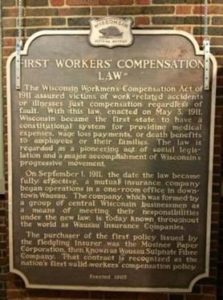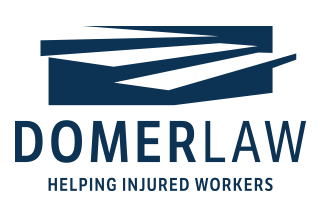
As anticipated, on December 22, 2015, the Worker’s Compensation Advisory Council (WCAC) approved its Agreed-Upon Bill. The bill now goes to the Wisconsin legislature for consideration and, hopefully, passage.
Production of this Agreed-Upon bill underscores the success and stabilizing hand of the Advisory Council. The WCAC, composed of members of labor and management (including the Wisconsin Manufacturers and Commerce), typically produced a biennial “agreed upon” bill for approval by the Legislature. The WCAC produces reasoned, incremental changes that maintain the stability of the system for all stakeholders-employers, carriers, and workers. The WCAC immunized the substance of the Wisconsin WC system from partisan politics and election cycle swings commonly found in other states.
The Advisory Council bill deserves full support of all Wisconsinites that care about our nationally respected worker’s compensation system. There is, however, lone wolf legislation floating about. We previously talked about a bill (being pushed by Rep. John Spiros, head of the Trucking Industry Defense Association) that is properly seen as the “worker’s compensation destruction bill.” These ideas in the Spiros-led bill (AB-501) were NOT considered or vetted by the Advisory Council. The Council protects against just this sort of unchecked effort-protecting against random or crackpot ideas from severely damaging the reputable system.
In stark contrast, the Advisory Council carefully considered changes and produced a reasoned bill that improves or system and benefitsall stakeholders, especially the employers of our state. Indeed, some “employer-friendly” provisions include the following:
- A worker’s violation of alcohol or drug policy (if causally related to the injury) denies benefits.
- No lost time benefits (TTD) if terminated for good cause (using recent unemployment standards)
- A reasonable and manageable reduction in statute of limitations from 12 to 6 years.
- Establishing a Dept of Justice position for investigating/prosecuting WC fraud.
- Apportionment of functional PPD payments, so employers not responsible for pre-injury disability amounts.
Workers also have some incremental, important benefits in the Agreed-Upon bill. The permanent partial disability payments receive slight annual increases. Workers also will be allowed to work a certain amount of hours while pursuing academic retraining without having a decrease in work comp benefits, and workers will be allowed to ask a judge for “prospective” retraining claims (benefitting a worker who does not have the financial ability to enroll in school unless the work comp carrier will be paying).
The Advisory Council bill maintains the stability of Wisconsin’s first-class worker’s compensation system. Lone wolf legislation should be dismissed. We urge the Wisconsin legislature to whole-heartedly endorse the reasoned Advisory Council bill.


